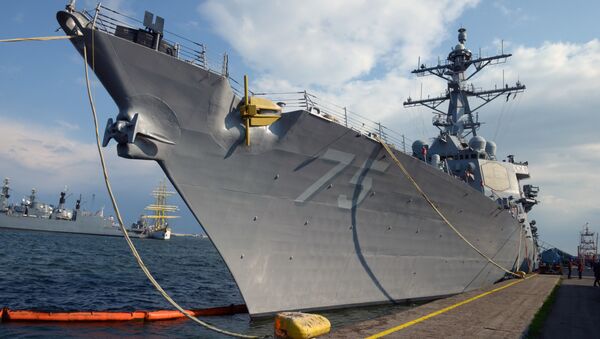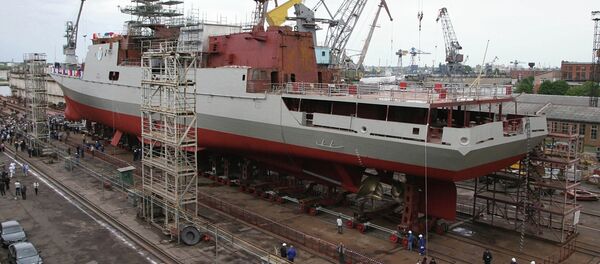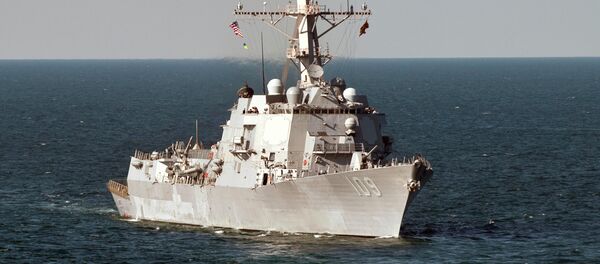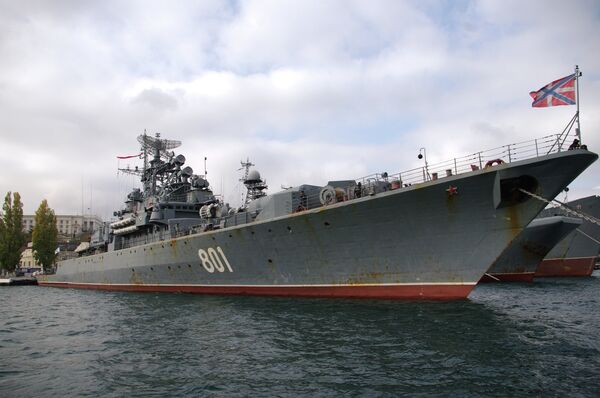The welcome is the warmest yet from the Russian navy's Black Sea fleet, whose ships operate professionally but often ignore communication from the US Navy.
"When we are at sea and our warships encounter one another, we communicate the way we do with any other navy," Foggo told reporters, explaining that such communication involves radio calls and flashing lights.
"It is better than it was before," said the admiral.
The Russian navy monitors US ships which enter the Black Sea through the Bosphorus Strait, where "nine times out of 10, a Russian warship is waiting for us," said Foggo, whose US navy forces previously entered the Black Sea for Exercise Breeze and Exercise Sea Shield in July, and Exercise Trident Poseidon in May.
"While we are out there in close proximity, we keep an eye on them as they keep an eye on us," said Foggo. "So far, it has been professional interaction."
In addition to the Russian warship's accompaniment of the Donald Cook, Russia's Black Sea naval fleet will also keep an eye on the Sea Breeze naval drills currently being carried out by NATO and Ukrainian naval forces in the Black Sea, using radio intelligence and reconnaissance aircraft.





